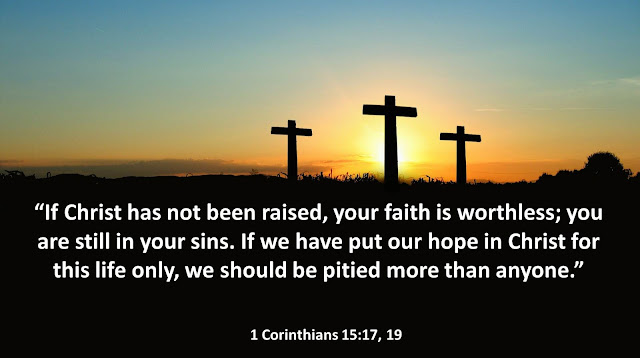"My dearly loved brothers, understand this: Everyone must be quick to hear, slow to speak, and slow to anger, for man’s anger does not accomplish God’s righteousness."
- James 1:19-20 (HCSB)
Introduction
As someone who loves to engage people in deep worldview conversations and steer unbelievers towards the truth of Christianity, my ability to communicate is vital. Whether I am conversing in person or commenting on a post on social media, it is important that the words I speak or write glorify God and work towards the end of bringing more people to the Truth. In 2018 I read and reviewed an important book that helps the reader to accomplish this goal. Communication expert Dr. Emerson Eggerichs (known for
Love and Respect) published his book on general communication, called "
Before You Hit Send: Preventing Headache and Heartache" to challenge his audience to exercise wisdom and discernment before "hitting send" on their communications to others- whether verbal or written. Because of the insight offered throughout the book, it was included in my
Top 5 Recommended Books for Productive Conversations. Eggerichs encourages people to ask four questions of what they are preparing to say or write to ensure that the words will accomplish the goal of the speaker or writer. Today, I am going to highlight those four questions and their importance for the Christian apologist.

Is It True?
Because the Christian worldview is true and people's eternal destinies depend upon their recognition of this truth, ensuring that as we defend the truth of Christianity we also speak truthfully about other matters is of utmost importance. It is natural for us to doubt someone's truthfulness when they speak something false. I have written many times about the importance of apologists' studying and defending non-essential doctrines, and in those posts, I emphasize this very concern of unbelievers.
For instance, many people have issues with origins and the Bible, and while not all aspects of origins are essential issues, it is important that the apologist be able to speak truthfully on the origins issue. If we speak falsely and the person knows that we are speaking falsely (whether we mean to or not), then we give them a good reason to doubt our trustworthiness when it comes to the more important matter of the Resurrection of Jesus.
Is It Kind?
One of the big issues that I see with Christians, especially on social media and when discussing hot-button issues such as origins, is the unkind attitude with which the Gospel is presented. While we defend the truth, we cannot defend it with contempt for the person we are presenting it to. They are created in the Image of God and are worthy of our love, respect, and kindness no matter what they have done or how frustrated they make us. If we truly wish for them to repent from their sins, accept Christ's sacrifice, and live with us for eternity, would we not want to present the truth in the most kind and loving way so as to encourage them to accept the truth we speak?
Unlike what many think about speaking kindly, it does not require that we speak untruthfully. "True" describes the content; "kind" describes the attitude with which content is presented. If we present true content unkindly, we do damage to the truth by making it appear repulsive.
Is It Necessary?
The necessity of what we speak has two sides. The first is that we must speak what is necessary, and the second is that we must refrain from speaking what is unnecessary. Many Christians refrain from speaking what is necessary because they are fearful that they are not equipped to defend what they believe. They know that the time is right and that it is necessary to say something. They want to defend the truth of the Resurrection and the Christian worldview, and they know that they need to. Doing so is necessary in many of our conversations with friends, family, and coworkers. This is why studying the defense of the Christian worldview (asking the question "Is It True"- apologetics) is important for all Christians.
The second side is that we also tend to speak unnecessarily. For instance (I have to really watch out for this one), if an unbeliever is not struggling with science/faith issues, then bringing up the whole creation/evolution debate is unnecessary and may actually introduce a stumbling block for the unbeliever. No Christian ever wants to introduce more reasons for an unbeliever to reject (or even delay accepting) Christ. We need to listen carefully to the unbeliever's concerns and address those with truth and kindness and do our best to not bring more unnecessary matters into the decision-making process. This is not to say that these issues are not important; they are; but that particular conversation may not be the time to discuss them with a particular person. If the person brings up a non-essential matter, then it is now necessary to address, and we need to be prepared to do so or to refer them to a resource that can address it (all the while reminding them that it is not an essential issue and not a reason to reject Christ).
Is It Clear?
While everything that we speak can be true, kind, and necessary, we may still fail in our communication by not communicating it clearly. Many Christian apologists are familiar with the work of Greg Koukl. In his book "
Tactics: A Game Plan For Discussing Your Christian Convictions" he encourages Christians to engage in conversations by asking questions. When we ask ourselves "Is It Clear?" we are essentially taking Koukl's questions and asking them of ourselves: "What do
I mean by that?" and "How did
I come to that conclusion?" When we answer these questions for ourselves, we are more likely to be able to clearly communicate to others.
We must also not resist if others ask the "Columbo" questions of us. If the questions are asked, it is because we are not speaking clearly enough for a good understanding. In this situation, it should not frustrate us to have to clarify, it should excite us that the person values what we say enough to ask for clarification. When we are given the opportunity to clarify, we are given the opportunity to get the unbeliever intellectually (and many times, emotionally and spiritually) closer to accepting Christ.
Conclusion
As evangelists (Matthew 28:19) and defenders (1 Peter 3:15) of Christianity, it is vital to our purpose to be able and willing to communicate the Gospel in the most effective way possible. And in today's culture, stopping to think carefully about what we say or write is not necessarily encouraged. However, that is what is necessary to be successful ambassadors for Christ. I encourage you to pick up a copy of "
Before You Hit Send" and make the decision to consciously exercise the advice provided within it pages, for the benefit of Christ's Kingdom.

















![Quote from J. Warner Wallace from the book "Cold Case Christianity": "In a culture where image is more important than information, style more important than substance it is not enough to possess the truth. [Christian] case makers must also master the media." Quote from J. Warner Wallace from the book "Cold Case Christianity": "In a culture where image is more important than information, style more important than substance it is not enough to possess the truth. [Christian] case makers must also master the media."](https://blogger.googleusercontent.com/img/b/R29vZ2xl/AVvXsEgjzd-AVrSD639EhMmzxkuF0Bnljb5HsU8EWUMxinozxX8bH24FyQLgLy-zoOIdrbNroHsxUB7vC6hCq-vrGBScsrOGBo6BrVP-b4kmjQyzP0oIxprR-9KJ17qB4ESr-AwcC7ZZz7cMbPk/s640/Slide7.JPG)


